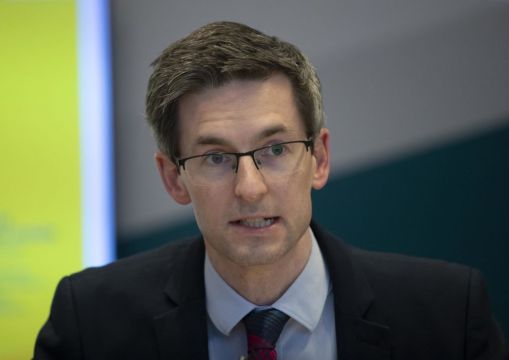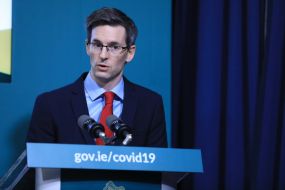Irish society should not be reopened further at this stage despite improvements in the battle against Covid-19, public health officials have said.
Deputy chief medical officer Dr Ronan Glynn last night said “We’re not there yet” when asked about the possible resumption of outdoor dining and any further easing of restrictions.
As The Irish Times reports, case numbers dropped 9 per cent last week and there is no evidence yet of a rise in infections related to Easter, but officials said case numbers were still too high to consider a further relaxation of restrictions.
Dr Glynn said Ireland was “weeks away from having the population vaccinated and [we] do not want to go backwards”. He said he “never again” wants to recommend measures to Government that close things down.
“It is our job to be conservative,” he said in an impassioned defence of the National Public Health Emergency Team (Nphet)’s approach. “Our job is to protect public health.”
About one million Covid-19 vaccine doses have now been administered in the State but there remains some uncertainty about the AstraZeneca shot after several EU countries and the UK restricted its use following reports of rare but serious blood clotting in recipients.
The first Irish case of this came to light on Thursday in a woman (40) who received the jab.
AstraZeneca concerns
The woman, who works in health services, is being treated at the Mater hospital for cerebral venous sinus thrombosis (CVST), the blood clot in the brain that EU medicines regulator the European Medicines Agency concluded this week was possibly linked to the AstraZeneca jab.
She is in recovery and is expected to be discharged in the coming days after spending a week in a stroke ward.
The National Immunisation Advisory Committee met on Thursday to consider the concerns around the AstraZeneca vaccine and was engaging with European colleagues. It will meet again on Friday morning.
Health sources say that vaccinators have reported some resistance among people to the AstraZeneca vaccine in recent days.
A delivery of more than 100,000 doses of the vaccine last week means it accounts for a large portion of the shots being administered this week.
On the easing of restrictions, Dr Glynn said thousands of people died last January when Ireland “did what other jurisdictions did”.







